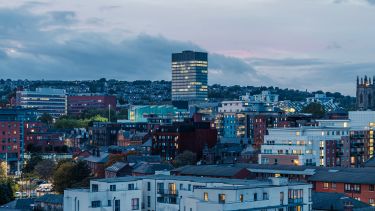Despite the pandemic, 2020 saw an upsurge in public engagement with long-standing anti-racist and decolonial movements such as Black Lives Matter and Rhodes Must Fall – sparked by the deaths of George Floyd and Breonna Taylor directly at the hands of police in the US, and represented in UK by the toppling of Bristol’s Edward Colston statue. This had led to louder calls for reckoning with the UK’s and Europe’s own distinct histories and systems of racism and ongoing coloniality.
Such events highlight ongoing movements in UK universities such as “Why is My Curriculum White?” and introspective projects across the UK seeking to unpack their historical (and ongoing) roles in slavery and processes of colonial extraction. Any commitment to ‘decolonising the university’ rings hollow without understanding such legacies. The University of Sheffield has a distinct history of civic engagement and the wider city’s history as a key player in the Industrial Revolution call for greater understanding of Sheffield’s role in slavery, colonial extraction as well as resistance movements.
Sheffield is renowned for being a key player in the Industrial Revolution, but its interconnected role in the system of slavery and colonial extraction, as well as forms of resistance, is lesser known. With its distinct history of civic engagement, it is incumbent upon the University of Sheffield to understand and address colonial legacies within the institution and city more broadly.
As part of a series of public events on development and decolonisation organised by the University of Sheffield’s Institute of International Development (SIID), we invite you to a panel discussion that will raise questions about the histories of coloniality and slavery in Sheffield and the role that the University of Sheffield can play in interrogating these histories, whilst also highlighting initiatives academic, activist and local initiatives engaged in this important work. This event is co-organised in partnership with the Department of Geography and Arts and Humanities Exchange.
We will be joined by a fantastic range of speakers from within and beyond the University:
Ella Barrett, MA candidate in History, University of Sheffield
Pete Evans, Archives and Heritage Manager, Sheffield City Council
Dr. Radha Kapuria, Leverhulme Early Career Fellow in History, University of Sheffield
Desiree Reynolds, author, local broadcaster and activist
Prof. Vanessa Toulmin, Director of City & Engagement, School of English, University of Sheffield
Queries can be sent to:

